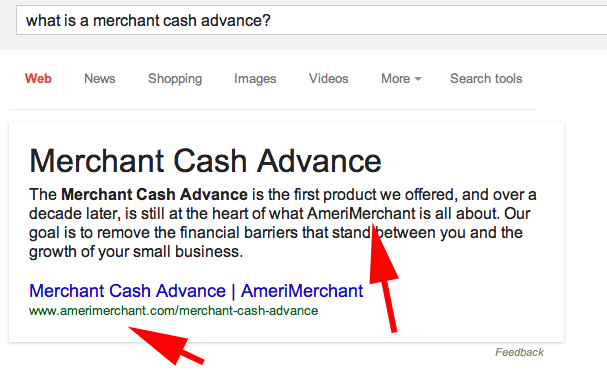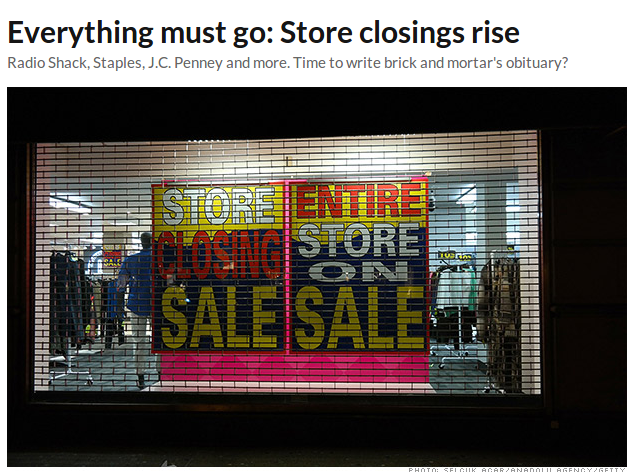ACH Advances
Yellowstone Capital Matures With New Executive Team
March 30, 2014 In an email newsletter that went out this morning, NYC-based Yellowstone Capital announced changes and additions to their executive team.
In an email newsletter that went out this morning, NYC-based Yellowstone Capital announced changes and additions to their executive team.
- Managing Partner Isaac Stern who has long been the public face of the firm is now the Chief Executive Officer.
- Marwan Salem is now the Chief Financial Officer.
- Josh Karp has been named the Chief Operating Officer.
Stern’s partner David Glass will keep his stake in the firm and continue to play an operational role.
The newsletter states, “Gangbuster growth hardly describes what Yellowstone Capital has experienced in the last 12 months. Deal flow has simply been huge.”
Yellowstone Capital was dubbed by DailyFunder to be one of the three most talked about funding companies of 2013. In perhaps recognition of the adage, if it ain’t broke, don’t fix it, the newsletter states, “Yellowstone Capital will continue to pursue less-drastic changes in its capital structure that preserve the winning formula.”
Merchant Cash Advance Syndication: Crowdfunding?
March 28, 2014 You might not have known this, but one of the most lucrative opportunities in merchant cash advance is the ability to participate in deals. It’s a phenomenon Paul A. Rianda, Esq addressed in DailyFunder’s March/April issue with his piece, So You Want to Participate?
You might not have known this, but one of the most lucrative opportunities in merchant cash advance is the ability to participate in deals. It’s a phenomenon Paul A. Rianda, Esq addressed in DailyFunder’s March/April issue with his piece, So You Want to Participate?
Syndication is industry jargon of course. You probably know the concept by its sexier pop culture name, crowdfunding. For all the shadowy rumors and misinformation that circulates out there about merchant cash advance companies, they’re similar to the trendy financial tech companies that have become darlings of the mainstream media.
Did you know that many merchant cash advances are crowdfunded? To date, no online marketplace has been able to gain traction in the public domain aside from perhaps FundersCloud, so crowdfunding in this industry happens almost entirely behind the scenes. There is so much crowdfunding taking place that it’s becoming something of a novelty for one party to bear 100% of the risk in a merchant cash advance transaction. Big broker shops chip in their own funds as do underwriters, account reps, specialty finance firms, hedge funds, lenders, and even friends and family members of the aforementioned.
Merchant cash advance companies find themselves playing the role of servicer quite often, which is coincidentally the model that Lending Club is built on. A $25,000 advance to an auto repair shop could be collectively funded by 10 parties, but serviced by only 1. Each participant is referred to as a syndicate. This is not quite the same system as peer-to-peer lending because syndicates are not random strangers. Syndication is typically only open to businesses, and most often ones that are familiar with the transaction such as the company brokering the deal itself.
In the immediate aftermath of the ’08-’09 financial crisis, some merchant cash advance companies became very mistrusting of brokers and deal pipelines were going nowhere. Underwriters had a list of solid rebuttals for deals they weren’t comfortable with. “If you want us to approve this deal so bad, why don’t you fund it yourself!,” underwriters would say. Such language was intended to put a broker’s objections over a declined deal to bed. But with all the money being spent to originate these deals, it wasn’t long until brokers stumbled upon a solution to put anxious merchant cash advance companies at ease. “Fund it myself? I’d love to, but I just can’t put up ALL of the cash.”
And so some brokers started off by reinvesting their commissions into the deals they made happen. That earned them a nice return, which in turn got reinvested into additional deals. Fast forward a few years later and deals are being parceled out by the truckload to brokers, underwriters, investors, lenders, and friends. There’s a lot of money to be made in commissions but anybody who’s anybody in this business has a syndication portfolio. The appetite for it is heavy. Wealthy individuals and investors spend their days cold calling merchant cash advance companies, brokers, and even me, trying to get their money into these deals. They know the ROI is high and they want in.
 That’s the interesting twist about crowdfunding in the merchant cash advance industry. You can’t get in on it unless you know somebody. There are no online exchanges for anonymous investors to sign up and pay in. It requires back door meetings, contracts, and typically advice from sound legal counsel. A certain level of business acumen and financial prowess are needed to be considered. These transactions are fraught with risk.
That’s the interesting twist about crowdfunding in the merchant cash advance industry. You can’t get in on it unless you know somebody. There are no online exchanges for anonymous investors to sign up and pay in. It requires back door meetings, contracts, and typically advice from sound legal counsel. A certain level of business acumen and financial prowess are needed to be considered. These transactions are fraught with risk.
In Lending Club’s peer-to-peer model, investors can participate in a “note” with an investment as small as $25. This is a world apart from merchant cash advance where it is commonplace to contribute a minimum of $500 per deal but can range up to well over $100,000.
Lending Club defines diversification as the possession of more than 100 notes. At $25 a pop, an investor would only need to spend $2,500. With merchant cash advance, 100 deals could be $50,000 or $10,000,000. By that measure, syndication is crowdfunding at the grownup’s table, a table that doesn’t care about sexy labels to appease silicon valley, only yield.
Strange merchant cash advance jargon keeps the industry shrouded in mystery. Did you know that split-funding and split-processing are terms often used interchangeably? Or that they have a different meaning than splitting? Or that the split refers to something else entirely?
Do you know what a holdback is or a withhold? How about a stack, a 2nd, a grasshopper, an ISO, an ACH deal, a junk, a reup, a batch, a residual, a purchase price, a factor rate, or a UCC lead?
Paul Rianda did a great job detailing the risks of syndication, but there is one thing he left unsaid, and that’s if you’re going to participate in merchant cash advances, you better be able to keep up with the conversation.
At face value, syndication is nothing more than crowdfunding. But if your reup blows up because some random UCC hunting ISO stacked an ACH on top of your split while junking him hard and upping the factor with a shorter turn, you just might curse the hopper that ignored your holdback and did a 2nd. And on that note, perhaps it’s better that the industry refrain from adopting mainstream terminology. We wouldn’t want everybody to think this business is easy. Because it’s not.
One factor to consider is the actual product being crowdfunded. In equity crowfunding, participants pool funds together to buy shares of a business. In crowdlending, participants pool funds together to make a loan. But in merchant cash advance syndication, participants pool capital to purchase future revenues of a business. An assessment is made to predict the pace of future income and a discounted price is paid to the business owner upfront. That purchase price is commonly known as the advance amount.
Syndication has more in common with equity crowdfunding than crowdlending. If you buy future revenues and the business fails, then your purchase becomes worthless. There is typically no recourse against the business owner personally unless they purposely interfere with the revenue stream and breach the agreement. Sound a bit complicated? It is, but crowdfunding in this space is prevalent nonetheless. To get in on it, you need to know someone, and to do it intelligently, you better know what the risks are.
If you want to sit at the grownup’s table and syndicate, consult with an attorney first. There’s a reason this industry hasn’t adopted sexy labels. It isn’t like anything else.
The Best Free Lead Source
March 25, 2014In what is likely a Knowledge Graph hiccup, Google is giving New York-based AmeriMerchant a wonderfully free source of advertising. Merchant Cash Advance is a product in a multi-billion dollar a year industry. What is a merchant cash advance, you ask? Why it’s something that only AmeriMerchant invented and offers apparently.

What’s perhaps more ironic is that AmeriMerchant is famous for overturning another company’s patented claim to merchant cash advances. In the mid-2000s, AmeriMerchant led a charge against the alleged merchant cash advance inventor AdvanceMe. In a landmark case that overturned AdvanceMe’s patent and put AmeriMerchant’s CEO on the front page of the New York Times, merchant cash advance became the property of no single company. Today, merchant cash advances are offered directly or indirectly by more than a thousand companies nationwide.
I wonder how much AmeriMerchant is banking off this…
Fund it and Ask Questions Later
March 25, 2014 Ever since OnDeck Capital stopped doing verbal landlord references, the underwriting landscape of alternative lending has changed dramatically. Kabbage will supposedly fund applicants in just 7 minutes. Everybody’s under the gun to streamline their process, fund deals faster, and produce record breaking numbers month after month.
Ever since OnDeck Capital stopped doing verbal landlord references, the underwriting landscape of alternative lending has changed dramatically. Kabbage will supposedly fund applicants in just 7 minutes. Everybody’s under the gun to streamline their process, fund deals faster, and produce record breaking numbers month after month.
And why shouldn’t they? Investors are practically foaming at the mouth to get in on any and all kinds of alternative lending. Even Lending Club has thrown in the towel by no longer allowing investors to ask applicants questions. Prior to March 19th, applicants on Lending Club’s platform had the option to answer standardized questions about themselves and their purpose for seeking out a loan. This was set up to help investors feel more informed and comfortable. Once the loan was posted, prospective investors could ask the applicant additional questions of their own to help them decide if it was a deal they wanted to participate in. For example, “what are the interest rates on the credit cards you claim you want to consolidate?” That’s a fair question to ask someone seeking a debt consolidation loan.
Lending Club did away with the Q&A in the name of privacy but conceded in their blog that people are funding deals so fast that no one cares what applicants have to say.
We know that in the past some investors enjoyed reading these descriptions and answers, but as the platform has grown, fewer and fewer investors are using this approach to inform their decisions. Fewer than 3% of investors currently ask questions and only 13% of posted loans have answers provided by borrowers. Furthermore, loans are currently funding in as little as a few hours – well before borrower answers and descriptions can be reviewed and posted.
Loans are being fully funded by institutional investors and mom & pop investors before the applicant can even finish filling out the questionnaire.
 The demand to invest outpaces the amount of loans that Lending Club can originate. In a call I had with Lending Club today as a potential investor, I was told that businesses were not even allowed to invest on their platform at this time because they’ll take up all the loans and leave nothing for the average mom & pop investors, the ones which have made their peer-to-peer fame possible.
The demand to invest outpaces the amount of loans that Lending Club can originate. In a call I had with Lending Club today as a potential investor, I was told that businesses were not even allowed to invest on their platform at this time because they’ll take up all the loans and leave nothing for the average mom & pop investors, the ones which have made their peer-to-peer fame possible.
In the Lend Academy blog forum, mom & pop investors debated the usefulness of the Q&A system. Some argued that responses from applicants allowed them to weed out folks with poor spelling and grammar. Others believed that a poorly worded response was better than someone who didn’t respond at all because it showed that they actually cared about the loan they were applying for.
There were folks that analyzed the applicants language on a scientific level, with one going so far as to cite this study: Peer-to-Peer Lending The Relationship Between Language Features, Trustworthiness, and Persuasion Success.
I am reminded of my underwriting days conducting merchant interviews prior to a final decision. There were applicants that looked good on paper that came across as completely clueless about their business over the phone. Like beyond clueless. And then there were applicants that looked ugly on paper that really impressed me with their command of business subject matter. What shocked me were the former and it’s a testament to how tricky business lending is. Those phone calls impacted my final decision all the time.
But in today’s world where funders are dealing in kilos of cash instead of nickels and dimes, there’s a growing impatience over non-automated things like interacting with the applicant. Fund the deal and ask questions later!
 The vast majority of merchant cash advance companies still conduct applicant phone interviews and there’s a part of me that hopes that never changes. As investors grow restless for new pools of loans or advances to participate in, I fear there will be more underwriting sacrifices to satisfy that demand.
The vast majority of merchant cash advance companies still conduct applicant phone interviews and there’s a part of me that hopes that never changes. As investors grow restless for new pools of loans or advances to participate in, I fear there will be more underwriting sacrifices to satisfy that demand.
It was only a year ago that I laughed at my friend in commercial banking when he told me a small business loan application begins with lunch and a few rounds of golf. “It’s about relationships,” he said. That couldn’t be less true in peer-to-peer lending where the goal is to know as little as possible about where the money is going. I see that mentality creeping into merchant cash advance as well. Sure, there are folks that point to thousands of data points aggregated through online sources but it only takes a 5 minute phone call to determine that an applicant is completely full of crap.
Maybe Jeremy Brown of RapidAdvance was on to something. When Will the Bubble Burst?
Join the discussion about this on DailyFunder.
Kabbage Has Leverage With Patents
March 23, 2014 If you’re planning on introducing new technology to the merchant cash advance or alternative business lending space, you might want to start filing a patent, or else end up violating someone elses.
If you’re planning on introducing new technology to the merchant cash advance or alternative business lending space, you might want to start filing a patent, or else end up violating someone elses.
I’ve brought up Kabbage and patents before, but another one of theirs caught my attention. In their invention named, Method and Apparatus to Evaluate and Provide Funds in Online Environments, they claim the right to an automated application, scoring, approval, and funding model for online businesses.
Will their claim interfere with what the rest of the industry is already doing or has set their sights on?
Kabbage CEO Rob Frohwein is no amateur to the intellectual property game. With more than 30 patents to his name, Intellectual Asset Magazine once referred to him as one of the world’s top intellectual property strategists. That makes Kabbage a rather dangerous foe in the booming world of alternative lending.
The above referenced patent is summarized as:
(a) receiving mandatory information about a user and storing the mandatory information in an electronic computer database; (b) allowing a user to choose whether to enter optional information about the user, and upon receiving the optional information, storing the optional personal information in the electronic computer database; (c) computing a score using the mandatory information and optional information if provided; and (d) determining whether to approve a transfer of funds using the score, and upon approval initiating an electronic transfer of funds from a cash server to an account associated with the user, (e) wherein upon the user entering the optional information the user receives an incentive.
If you read through the entire description of the patent and scan through the photos, you’ll notice they included an option for applicants to submit additional data that could reward them with a higher approval. Such data includes sharing all their LinkedIn and Facebook friends with Kabbage, which Kabbage says it will use to systematically evaluate, determine the ones that are business owners, and solicit them.

Additionally, it outlines how such optional data could be used in their assessment of the applicant:
TABLE III
site metric significance
FACEBOOK user has more friends favorable
FACEBOOK user has less friends unfavorable
FACEBOOK fan page existsf or user favorable
FACEBOOK no fan page for user unfavorable
FACEBOOK more people like user’s fan page favorable
FACEBOOK less people like user’s fan page unfavorable
FACEBOOK more people comment on user’s fan page favorable
FACEBOOK less people comment on user’s fan page unfavorable
FACEBOOK new articles posted more frequently on user’s favorable fan page
FACEBOOK new articles posted less frequently on user’s unfavorable fan page
TWITTER user has more followers favorable
TWITTER user has less followers unfavorable
TWITTER user’s followers have more followers favorable
TWITTER user’s followers have less followers unfavorable
LINKEDIN user’s company has more employees favorable
LINKEDIN user’s company has less employees unfavorable
LINKEDIN user’s profile has more views favorable
LINKEDIN user’s profile has less views unfavorable
In their filing they also submitted what they believe to be the definition of a merchant cash advance.
A merchant account advance is an advance by an advancing party that uses a seller’s merchant account in order to receive payments by the seller for the amount advanced. For example, a seller uses their merchant account to receive payments by credit card (e.g., VISA, MASTERCARD). Once payments are processed the amounts go directly into the seller’s merchant account. When a merchant account advance (or “merchant cash advance”) is made, when a payment is processed, instead of it going directly into the seller’s account the payment may go directly into an account of the advancing party. There are alternative ways to implement merchant cash advance, including a simple advance against future receivables, but when these receivables are received they still go into the existing payment account.
That last line totally acknowledges the ACH payment phenomenon. Hopefully they didn’t file for a patent on that too. Then there might really be trouble.
Whether or not your inventions or technology is patentable or conflicts with a Kabbage held patent would best be determined by consulting with an attorney. Let this be a reminder or notice though that the battle taking place in alternative lending is happening on many levels. As the industry matures, patents could become an Ace in the hole.
Join the Industry March Madness Competition
March 11, 2014 Ready to test your NCAA basketball skills against your friends and foes? Join the industry’s 2014 March Madness Competition hosted by Merchant Cash Group! (league password: mcg589)
Ready to test your NCAA basketball skills against your friends and foes? Join the industry’s 2014 March Madness Competition hosted by Merchant Cash Group! (league password: mcg589)
Merchant Cash Group will be providing a Grand Prize of $250.00* to the overall winner and keeping with tradition all participants will receive a trophy highlighting their not so stellar accomplishments.
I did really well in it last year. How well you ask? So well that Merchant Cash Group bestowed upon me this trophy:

So maybe I didn’t do so great. But I have grand plans in 2014 especially with my alma mater making the tournament for the first time since 1999. I hope you guys are ready for the Blue Hens. I have them making my final 4. Think I’m a fool? Show me up and:
———
Merchant Cash Group is a direct merchant cash advance provider and was the awesome co-host of the last 2 industry fantasy football challenges.
*You do not need to be a referral partner of MCG to participate but the Grand Prize of $250 will only be awarded to partners. Non partners will receive $100.00
Is There Cause for Alarm?
March 8, 2014
Brick and mortar chain stores died this week, after a long illness. Born along Main Street, raised in shopping malls across post-World War II America, the traditional store enjoyed decades of good health, wealth and steady growth. But in recent years its fortunes have declined. Survived by Amazon.com and online outfits too numerous to list.
– CNN 3/7/14
Just a day after Jeremy Brown’s new CEO Corner post appeared on DailyFunder with an overt bubble warning, CNN’s Chris Isidore alluded that the era of brick & mortar retail may be drawing to a close. In Isidore’s brief sensational article, he fingers an overabundance of retail space, a weak economy, and the Internet as the culprits behind Main Street‘s decline.
In the broad alternative business lending industry, the sentiment is quite the opposite. Small business demand for working capital is surging and no one is predicting anything less than stellar growth for the foreseeable future. But is the growth real?
Jeremy Brown is the CEO of Bethesda, MD-based RapidAdvance and he explains the growth may not be what it appears to be on the surface. Some cash providers are overpaying commissions, stretching out terms longer than what their risk tolerance supports, and are growing by funding businesses that have already been funded by someone else (a practice known as stacking).
If the industry collectively booked 50,000 deals in 2013 and increased that to 100,000 deals in 2014, you’d have 100% growth, or at least it would appear that way on the surface. What if the additional 50,000 deals funded this year were not new clients but rather additional advances and loans made to existing clients? It’s a lot easier to give all of your clients money twice instead of acquiring new ones.
This all begs the question, is demand for non-bank financing really growing by leaps and bounds? Or does it just appear that way because those that have already utilized it are demanding more of it?
Brown left his readers with this conclusion, “There will be a rebalancing at some point. And it will not be pretty.”
Chime in with your thoughts about this on DailyFunder.
—–
When Will the Bubble Burst? by Jeremy Brown will also appear in the next print issue of DailyFunder. If you haven’t subscribed to the magazine already, you can do so HERE.
The Growing Divide
February 28, 2014 It wasn’t too long ago that everyone in this industry knew everyone else. If not personally, then at least through their credit inquiries or UCC names. You crossed paths and acknowledged each other. It was a small world then. Today, not so much.
It wasn’t too long ago that everyone in this industry knew everyone else. If not personally, then at least through their credit inquiries or UCC names. You crossed paths and acknowledged each other. It was a small world then. Today, not so much.
As the barriers to entry have remained low, the simplicity of ACH repayment has drawn in people by the thousands to become brokers, syndicates, and funders. Anyone can be any one of those three or all three at the same time. There’s still the originals out there, the guys who go to the trade shows and visit offices regularly to stay in touch. But then there’s another crowd, the newcomers that don’t file UCCs, attend shows, or interact much with everyone else. They’re funding a half million, a million, or even $5 million a month and no one really knows they exist except for their own clients. The merchant cash advance industry which was once a shadowy market in its own right now has its own shadowy sector within it.
At the Factoring 2014 conference in April, the President of Fora Financial is poised to debate the Business Development manager of Credit Cash on the subject of whether or not merchant cash advance transactions are true sales. The truth is that I have seen so many variations of funding contracts out on the street that the merits of that debate may be flawed. No one knows what a merchant cash advance is anymore. It’s a point I argued in You Can’t Ask How Big it Is Without Defining What it is in January’s issue of DailyFunder.
The industry is made up of people that deal in daily payments. How these deals are structured vary widely. Indeed there is a growing divide.
Emotions are running high in 2014 and some grievances are practically coming to blows. Stacking is as polarizing a debate as Obamacare. There are folks that believe there is no precedence for dealing with stacking, but stacking is as old as MCA.
Many years ago it was cut and dry. If one company purchased the future revenues of a small business, it was contractually impossible for a second company to buy that same block of future revenues. “How could someone else buy what has already been sold?” so the argument went…
In 2007-2008, stacking was a merchant problem, whereby small business owners would devise ways to get double or triple funded in a very short amount of time so that each company didn’t know about the other until long after the money had been wired. Much of the arguments in favor of stacking back then came from the merchants themselves who felt that MCA contracts bordered on being unlawfully restrictive because it prevented them from obtaining virtually any outside financing unless the MCA was satisfied in full. Without the capital to satisfy their entire outstanding MCA balance, they were locked into renewing with the same company indefinitely with little leverage to negotiate future terms, so the argument went…
Today, it’s the funding companies that bear the brunt of criticism from their peers for stacking, mainly because they do it willingly and are not being deceived by merchants. It is perceived as a funder problem.
In March of 2008 (a full 6 years ago), the Electronic Transactions Association (ETA) established the following guidelines on the issue in their MCA white paper:
In order to effectively manage risk and prevent a merchant from becoming over-extended, merchants should not knowingly be allowed to “stack” advances (obtaining an additional advance when an outstanding balance on a previous advance exists). In the event additional advances are sought, the original advance should be paid off directly to the previous Merchant Cash Advance Company [MCAC] by the new MCAC (to ensure that the merchant does not retain funds due to the previous MCAC) with a portion of the proceeds given on the current advance.
The ETA calls for many common sense standards such as fair retrieval rates, sound underwriting, and legal collections practices. The advice is timeless and I suggest everyone read it. The industry might be growing apart but many of the fundamentals are the same.
Still, with the new crowd of near-anonymous funders, it is impossible to know what everyone’s intentions are. Given the low barriers to entry, there’s also the question as to whether or not the newcomers are legally prepared to book such deals. The industry is fraught with risks and always has been.
I just hope that as the divide grows, we are all united by a common goal, acting in the best interest of small businesses.





























